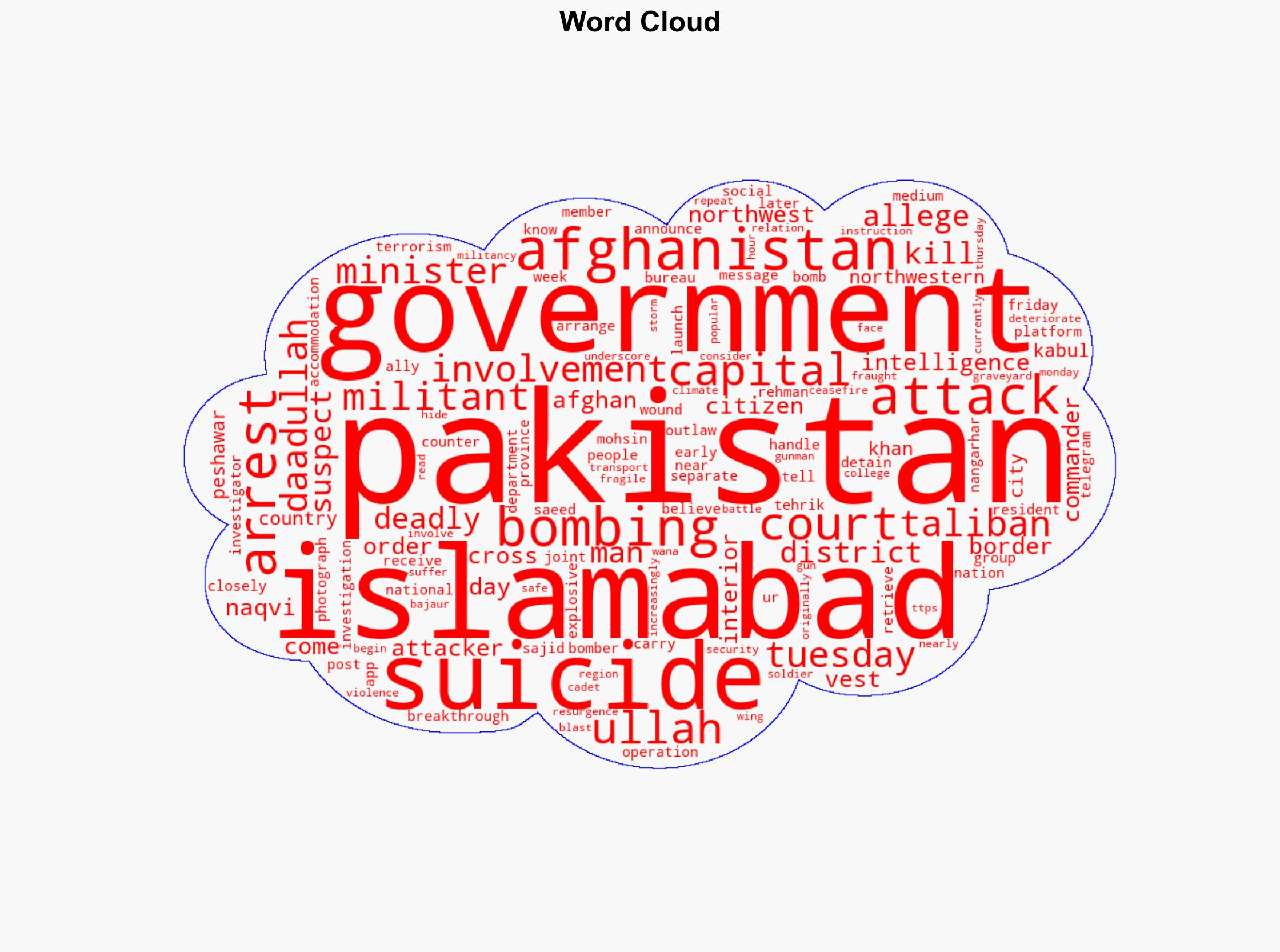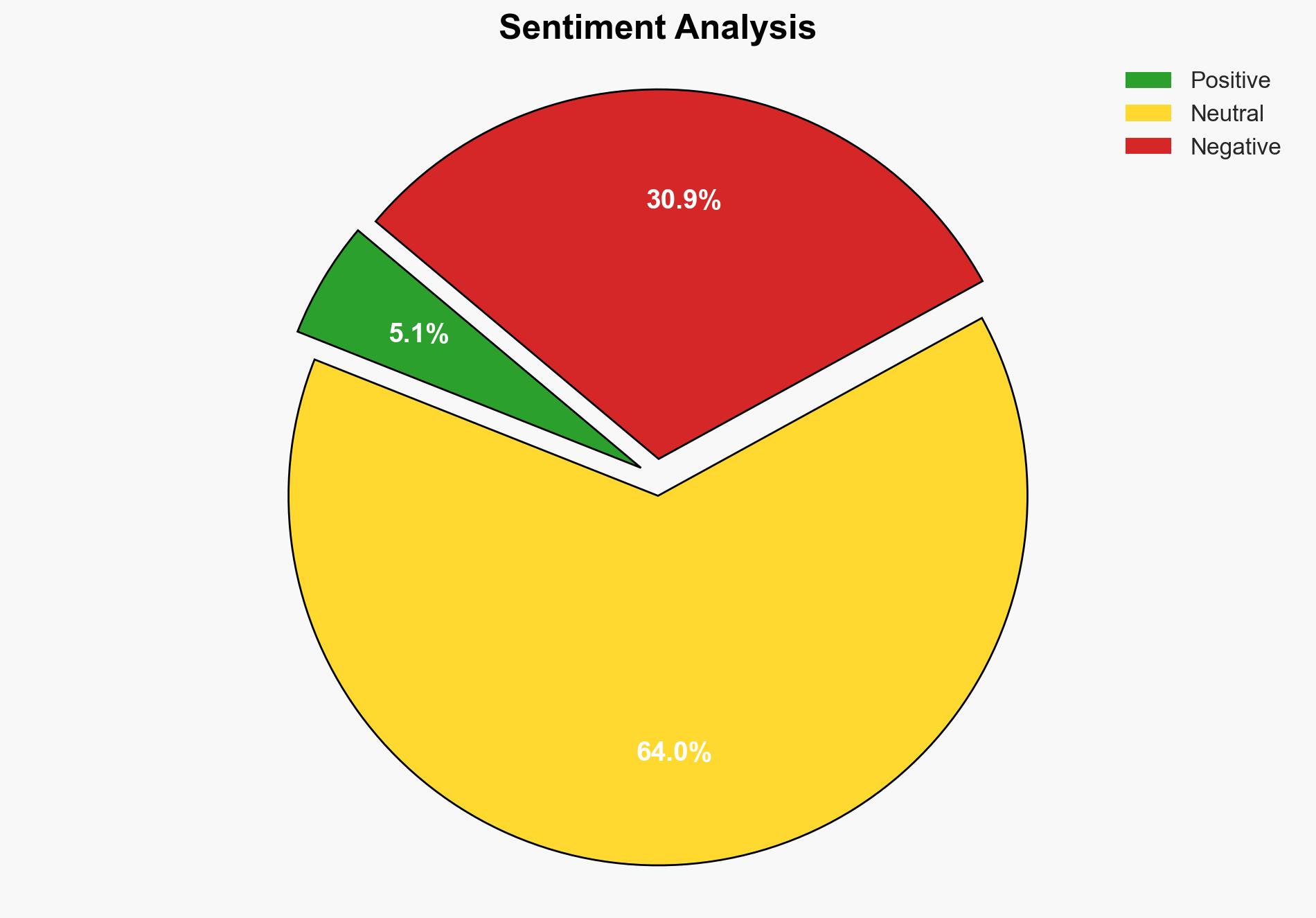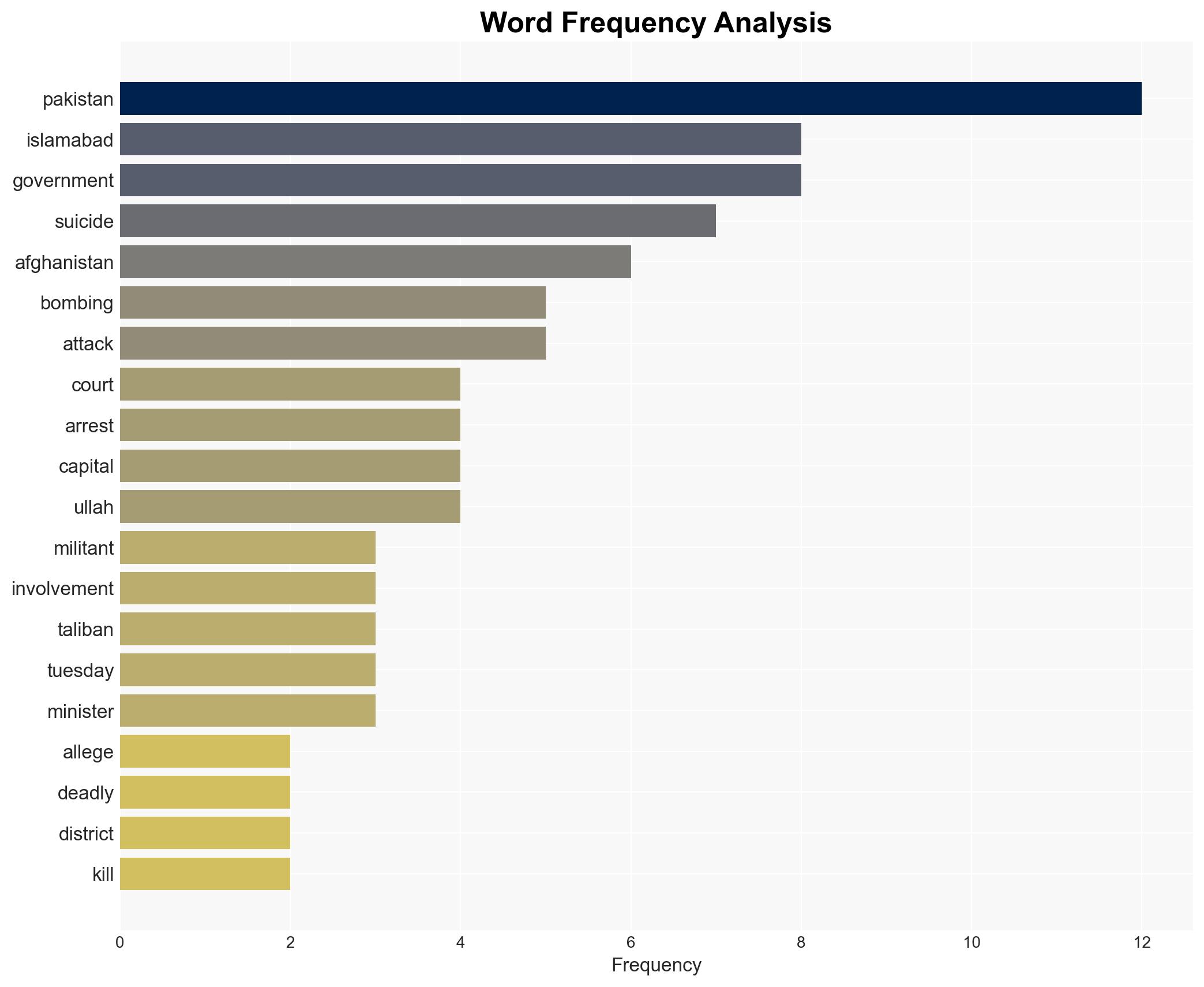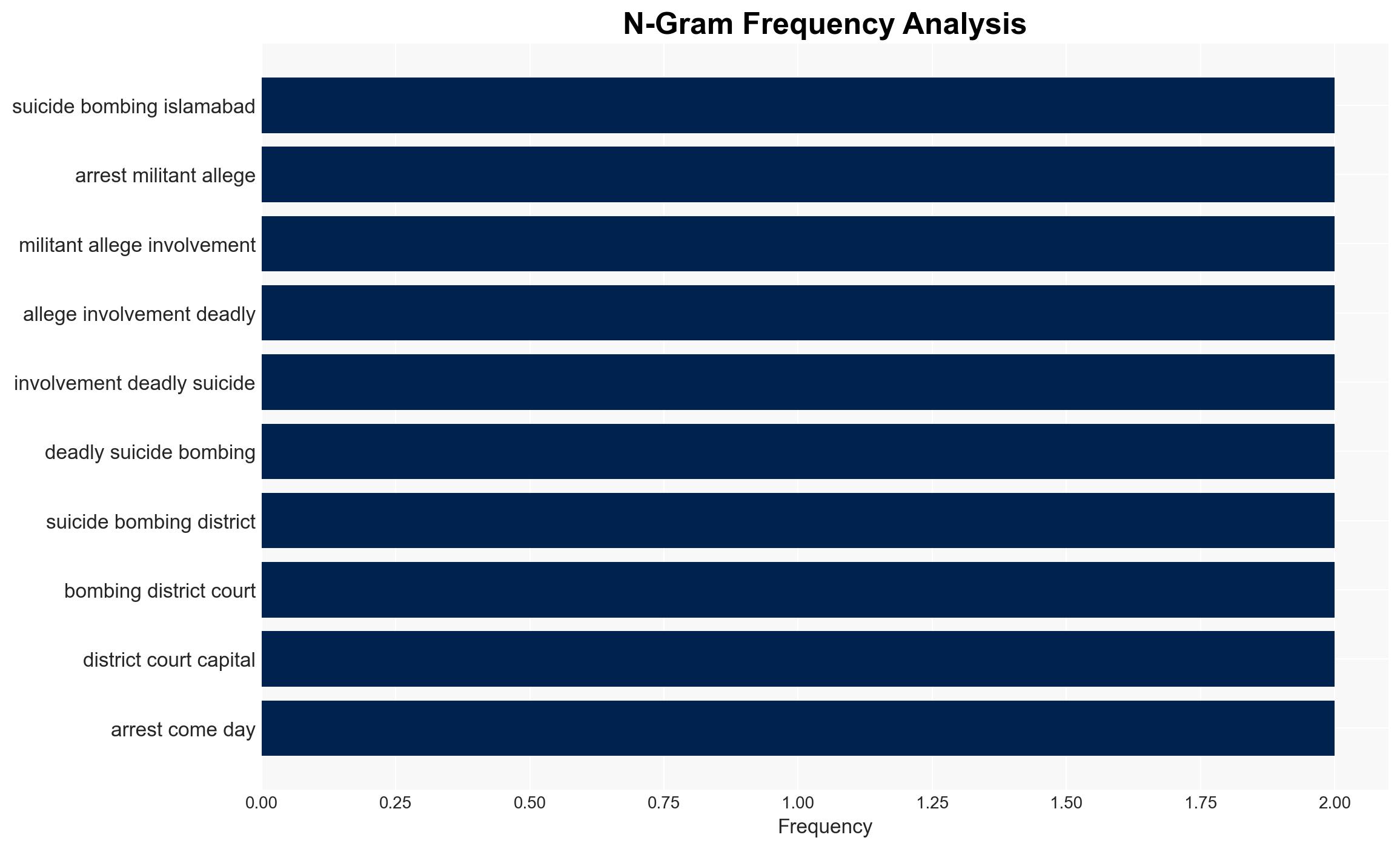Pakistan says it has arrests 4 militants over involvement in suicide bombing at Islamabad court – ABC News
Published on: 2025-11-14
AI-powered OSINT brief from verified open sources. Automated NLP signal extraction with human verification. See our Methodology and Why WorldWideWatchers.
Intelligence Report: Pakistan says it has arrests 4 militants over involvement in suicide bombing at Islamabad court – ABC News
1. BLUF (Bottom Line Up Front)
With moderate confidence, the most supported hypothesis is that the recent arrests are part of a broader Pakistani effort to curb the resurgence of militancy linked to the Tehrik-i-Taliban Pakistan (TTP) and its affiliates. Strategic recommendations include enhancing cross-border intelligence sharing with Afghanistan and bolstering internal counter-terrorism measures.
2. Competing Hypotheses
Hypothesis 1: The arrests indicate a successful counter-terrorism operation by Pakistani authorities, aimed at dismantling TTP networks and preventing further attacks.
Hypothesis 2: The arrests are primarily a political maneuver by the Pakistani government to demonstrate action against terrorism amidst increasing domestic and international pressure, with limited impact on the actual operational capabilities of TTP.
Hypothesis 1 is more likely given the detailed operational information shared, such as the involvement of Sajid Ullah and Saeed Ur Rehman, and the cross-border elements of the operation. However, the timing of the arrests following international criticism suggests some elements of Hypothesis 2 may also be at play.
3. Key Assumptions and Red Flags
Assumptions: The Pakistani government has accurately identified and arrested the individuals responsible for the attack. The TTP’s operational capabilities are significantly impacted by these arrests.
Red Flags: The reliance on information from a single source (Ullah’s confession) could indicate potential coercion or misinformation. The rapid announcement of arrests may suggest a need to quickly appease public and international opinion.
4. Implications and Strategic Risks
The arrests could lead to short-term disruption of TTP activities but may also provoke retaliatory attacks, increasing instability. The fragile relationship between Pakistan and Afghanistan could deteriorate further if cross-border militant activities are not effectively managed. Additionally, failure to address underlying socio-political grievances could perpetuate cycles of violence.
5. Recommendations and Outlook
- Enhance intelligence-sharing mechanisms with Afghanistan to track cross-border militant movements.
- Strengthen internal security measures, particularly in urban centers, to prevent retaliatory attacks.
- Engage in diplomatic efforts to stabilize relations with Afghanistan and encourage cooperative counter-terrorism strategies.
- Best-case scenario: Successful dismantling of TTP networks leads to reduced militant activities.
- Worst-case scenario: Retaliatory attacks escalate, leading to increased violence and destabilization.
- Most-likely scenario: Continued sporadic militant activities with periodic successes in counter-terrorism operations.
6. Key Individuals and Entities
Sajid Ullah, Saeed Ur Rehman, Daadullah, Mohsin Naqvi, Shehbaz Sharif
7. Thematic Tags
Structured Analytic Techniques Applied
- ACH 2.0: Reconstruct likely threat actor intentions via hypothesis testing and structured refutation.
- Indicators Development: Track radicalization signals and propaganda patterns to anticipate operational planning.
- Narrative Pattern Analysis: Analyze spread/adaptation of ideological narratives for recruitment/incitement signals.
Explore more:
Counter-Terrorism Briefs ·
Daily Summary ·
Support us
·





